Community-Engaged Faculty Experiences – Institutional Case Study
This study is hosted by ICEE in collaboration the American Association of Public and Land-grant Universities (APLU) Commission on Economic and Community Engagement (CECE) CECE Student Advisory Group (SAG).
This case study examines faculty experiences with community engagement at one university to explore how these faculty, and their scholarship and practice, are shaped by their social identities, place and role at the institution, and the (mis)alignment between policies and practices that espouse support for community-engaged scholarship.
This study was spurred by the practical interest to recruit and retain community-engaged faculty as a strategy to enact and sustain an institution’s commitment to community engagement. To understand whether institutional efforts to communicate its identity as a community-engaged campus, such as through elective classification and other institutional indicators of engagement and support, one must know whether prospective faculty do, in fact, perceive the institution to be community-engaged. Further, if potential faculty perceive the institution to be community-engaged, then is this considered as part of their decision to accept employment? Answering these questions helps those wishing to recruit community-engaged scholars to their campuses to understand whether and how messages sent externally affect employment choices.
As important as the question of recruitment, is the question of retainment. Once faculty elect to join an institution they perceive to be community-engaged, do their experiences once employed match their earlier views? What are the factors that shape these perceptions of whether their views before and during employment align? What were their reasons for pursuing community-engaged scholarship at the university and which aspects of the institution do they point to when describing what attracted them? We explore this work to understand institutional alignment with the interests and values of faculty.
Preprint citation:
Ward, E., Janke, E., Wrencher, E., Goodner, H., Mitchell, T., & Hemphill, M. (2023, March 10). Faculty Community-Engaged Scholars Choosing to Come and Stay: Alignment Between Individual and Institutional Identities and Values. Retrieved from osf.io/b972n
Contact Dr. Janke with questions at emjanke@uncg.edu.
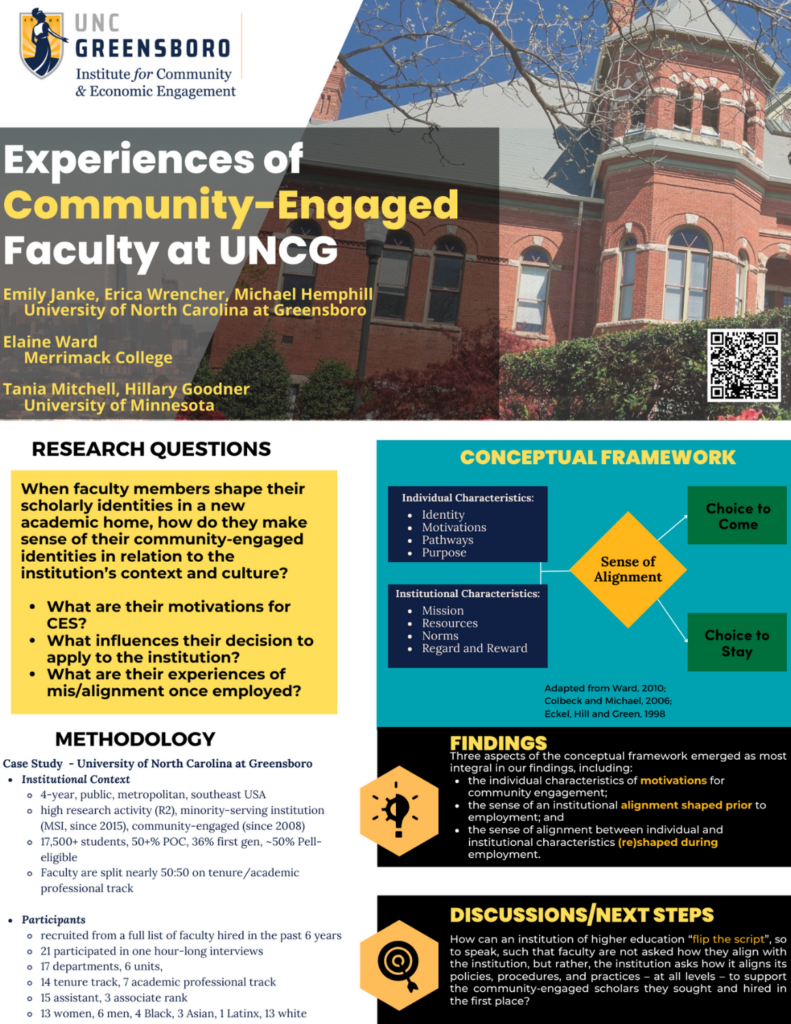
- Individual motivations for community engagement are personal; they are shaped by family values, faith, racial/ethnic identity, early childhood and experiences in their communities.
- CE faculty are aware of institutional image: prior to employment, they saw the institution as connected to and caring towards the surrounding community; they recognized the institution’s “status”,“focus” or “classification” as community-engaged; knew of institutional efforts to support diversity and inclusion, and recognition of community engagement in promotion and tenure policies.
- While institutional support matters, department messages and practices matter even more; just over half of the participants felt their CE was valued. Faculty pointed to the value of funded research and types of scholarly products as evidence for support and lack thereof.
- Contextual factors, such as institutional budget shortfalls and changes to contract length, impact faculty’s sense of the university’s commitment to their CE, as well as faculties’ sense of commitment to the university.
- Prospective and current faculty respond to institutional messaging about community-engaged scholarship.
- Community-engaged scholarship stems from personal commitments and values, which then are brought into faculty members’ professional purposes and missions.
- Promotion and tenure policies that support community engagement can be influential for prospective faculty perceiving institutional support of community-engaged scholarship.
- Institutional messages can help recruit faculty, but department messages must also follow if faculty are to feel that the institution is “walking their talk.”
- In a time of budget crises, faculty, and especially contract faculty, are especially attuned to whether community-engaged scholarship is valued – or not.
- How can an institution of higher education “flip the script”, so to speak, such that faculty are not asked how they align with the institution, but rather, the institution asks how it aligns its policies, procedures, and practices – at all levels – to support the community-engaged scholars they sought and hired in the first place?
Research Team
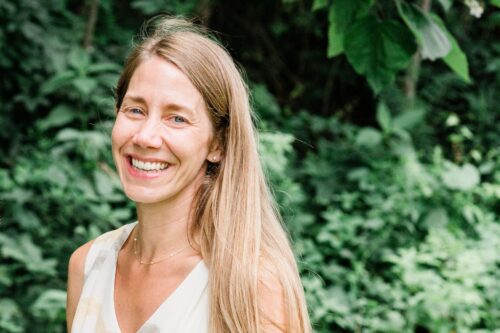
Emily M. Janke, Ph.D. is director of the Institute for Community and Economic Engagement (ICEE) and an associate professor in the Peace and Conflict Studies department. As the Director of ICEE, Emily leads and supports initiatives that encourage, support, elevate, and amplify faculty, staff, student, and community colleague community-engaged teaching, learning, research, creative activity, and service in ways that promote the strategic goals of the university, address pressing issues in the Piedmont Triad and serve the public good of communities across the state, nation, and world. An important aspect of this role is connecting and convening community-engaged scholars within and beyond the university to focus on community-identified priorities through partnership. Emily’s scholar-administrative work addresses multiple aspects of community engagement focused on community-university partnerships, and institutional culture and change strategies. In particular, she focuses on tracking and measuring community engagement and public service within and across institutions of higher education; the recognition of community-engaged scholarship in reappointment, promotion and tenure policies; the role of conflict management and transformation in community-university partnerships; institutional support for community engagement; innovations in scholarly communications; and reciprocity, collaborative communication, and restorative practices as aspects of high quality, ethical community engagement. Along with Barbara Holland and Kristin Medlin, Emily is an author of Collaboratory®, a publicly searchable, online database (licensed to TreeTop Commons, LLC) that shares an institutional story about who, what, where, with whom, and to what ends community-university partners are working towards community-identified priorities for shared learning and mutual benefits.
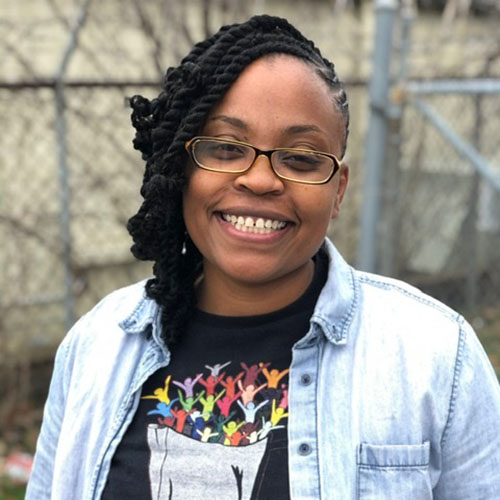
Erica Wrencher is a public educator, speaker, vocalist, and activist working with young folx, churches, and neighborhoods to build beloved communities. Her teaching and faith-rooted community leadership spans urban and rural contexts in North Carolina and Chicago. Erica holds a Bachelor of Arts in History, a Master of Arts in Teaching, and she is currently pursuing a PhD in Educational Leadership and Cultural Foundations. She is active as an organizer for racial equity and justice and considers herself a human connection educator. Erica is committed to speaking from her context as a Black woman who is rooted in history and truth. She enjoys singing, eating good food and drinking good wine with her community and family. Erica is married to her best friend Brandon and they are the parents of two sons.
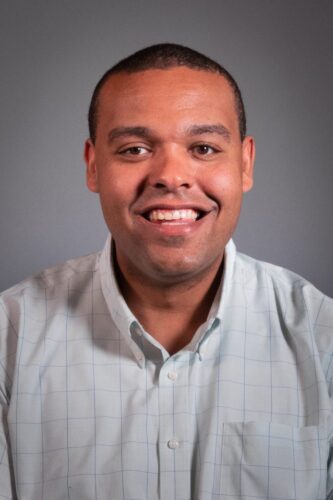
Dr. Hemphill is the founder and director of the Restorative Youth Sports lab at UNCG. Originally from western North Carolina, he was pleased to return to his home state in 2016. He identifies as a community-engaged scholar and is passionate about equity, diversity and inclusion. Dr. Hemphill teaches courses related to youth development, multicultural education, and proposal writing. The Restorative Youth Sports lab encompasses his passion for advancing restorative justice practice and better understanding how this applies to physical education contexts. When not at work, he enjoys listening to a variety of podcasts and hiking in state parks and along the Blue Ridge Parkway. Some of Michael’s notable accomplishments are: the Charles D. Henry Award through SHAPE America (2018), the Ernest Lynton Award through Campus Compact (2020), and recent promotion to Associate Professor with Tenure, UNC Greensboro (2021).
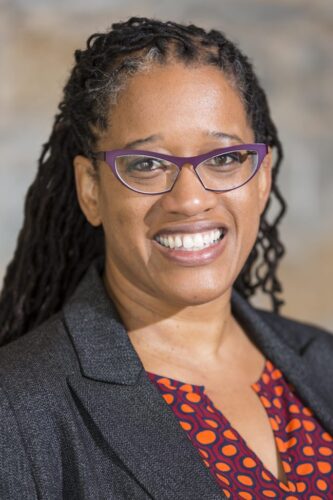
Tania D. Mitchell is an associate professor of higher education in the College of Education and Human Development at the University of Minnesota. Her teaching emphasizes college students and their development, issues of equity and access, leadership, and policy and practice in the functional areas of student-facing units in institutions of higher education. Her research focuses on the experiences of minoritized students in higher education and service-learning as a critical pedagogy to explore civic identity, social justice, student learning and development, race and racism, and community practice. She interrogates practices in higher education that aim to contribute to a more just world. Dr. Mitchell is a recipient of the Early Career Research Award (2011) and the Diversity, Equity, and Inclusion Award (2019) from the International Association for Research in Service-Learning and Community Engagement (IARSLCE) as well as the American Fellowship from the American Association of University Women. In 2021 she was inducted into the Academy of Community Engagement Scholarship (ACES). Her scholarship has been published in numerous books and journals and she is the editor (with Krista Soria) of Educating for Citizenship and Social Justice: Practices for Community Engagement at Research Universities (Palgrave Macmillan, 2018) and Civic Engagement and Community Service at Research Universities: Engaging Undergraduates for Social Justice, Social Change, and Responsible Citizenship (Palgrave Macmillan, 2016). She is also the editor (with Corey Dolgon and Tim Eatman) of the Cambridge Handbook of Service Learning and Community Engagement (Cambridge University Press, 2017) and (with Stephanie Y. Evans and Andrea D. Domingue) Black Women and Social Justice Education: Legacies and Lessons (SUNY Press, 2019).
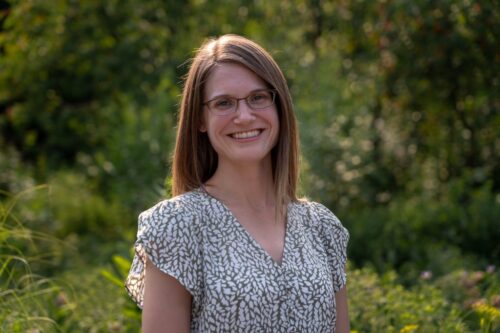
Hillary Goodner is a doctoral student in the Organizational Leadership, Policy and Development program (higher education emphasis) at the University of Minnesota-Twin Cities. Hillary is currently a 1st year PhD student preparing to study diversity, equity, and inclusion in higher education. Previous to her doctoral studies she served as the lead geology instructor at Yakima Valley College (YVC) in Washington state for six years. Over her time at YVC she provided leadership and mentorship for all geoscience educators, served on the curriculum committee, diversity series committee, co-advised the Climate and Environment Club, and advised science, technology, engineering, and mathematics (STEM) students. She holds a B.S. in Earth Science with a minor in Geographic Information Systems from Northern Michigan University and a M.S. in Geological Sciences (geophysics emphasis) from Central Washington University.
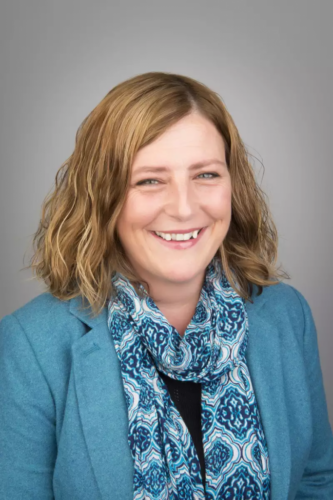
Dr. Elaine Ward has worked in higher education for more than 22 years, both here in the U.S. and in Europe. Elaine is an associate professor in the Master’s in Higher Education program, department chair, and serves as Special Assistant to the President for Civic and Community Engagement. She was the faculty champion of Merrimack’s successful application for the Carnegie Elective Classification for Community Engagement and is currently leading a presidential initiative at the College to advance and institutionalize the College’s civic and community engagement commitments. Visit the Winston School of Education and Social Policy.
Prior to Merrimack, Elaine worked in higher education in Europe as a researcher on an international project between universities in Ireland, Norway and the Netherlands measuring the Social Value of Arts and Humanities Research. Before that, Elaine worked at UMass Boston for 10 years in the College of Public and Community Service, as the Director of the Office of Student Services and as the director of the Center for Immigrant and Refugee Community Leadership and Empowerment. Her research focuses on the institutionalization of campus-community engagement, institutional transformation and change, faculty identity and promotion and tenure.
Along with Elaine’s work at UMass Boston and Merrimack College, Elaine is a nationally recognized leader in the field of civic and community engagement and serves on the National Advisory Council for the Carnegie Community Engagement Classification and is a past board member and conference chair for the International Association of Research on Service-Learning and Community Engagement. She is the author of Publicly Engaged Scholars: Next Generation Engagement and the Future of Higher Education and has also served for many years as a reviewer and then as the coordinator for the national Ernest A. Lynton Award for the Scholarship of Engagement for Early Career Faculty. Elaine serves as chair of the Lynton Colloquium and is the author and editor of the Metropolitan Universities Journal Special Issue Legacy Lived: A Generation of Ernest A. Lynton Award Recipients Advancing Community-Engaged Scholarship and Institutional Change.